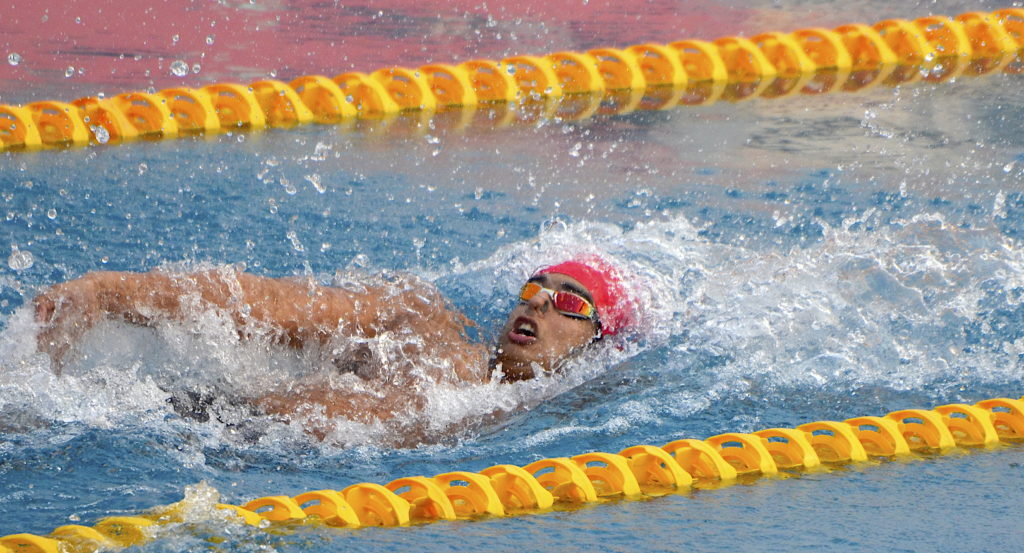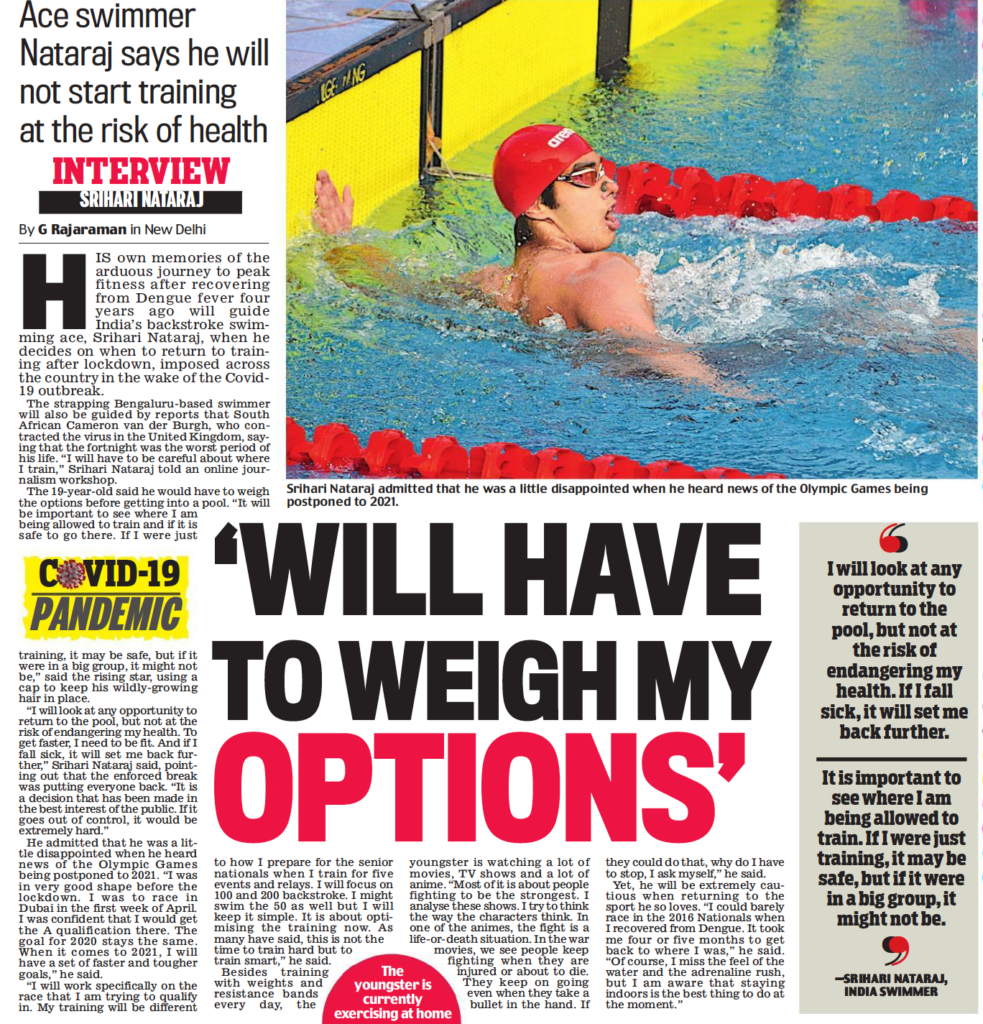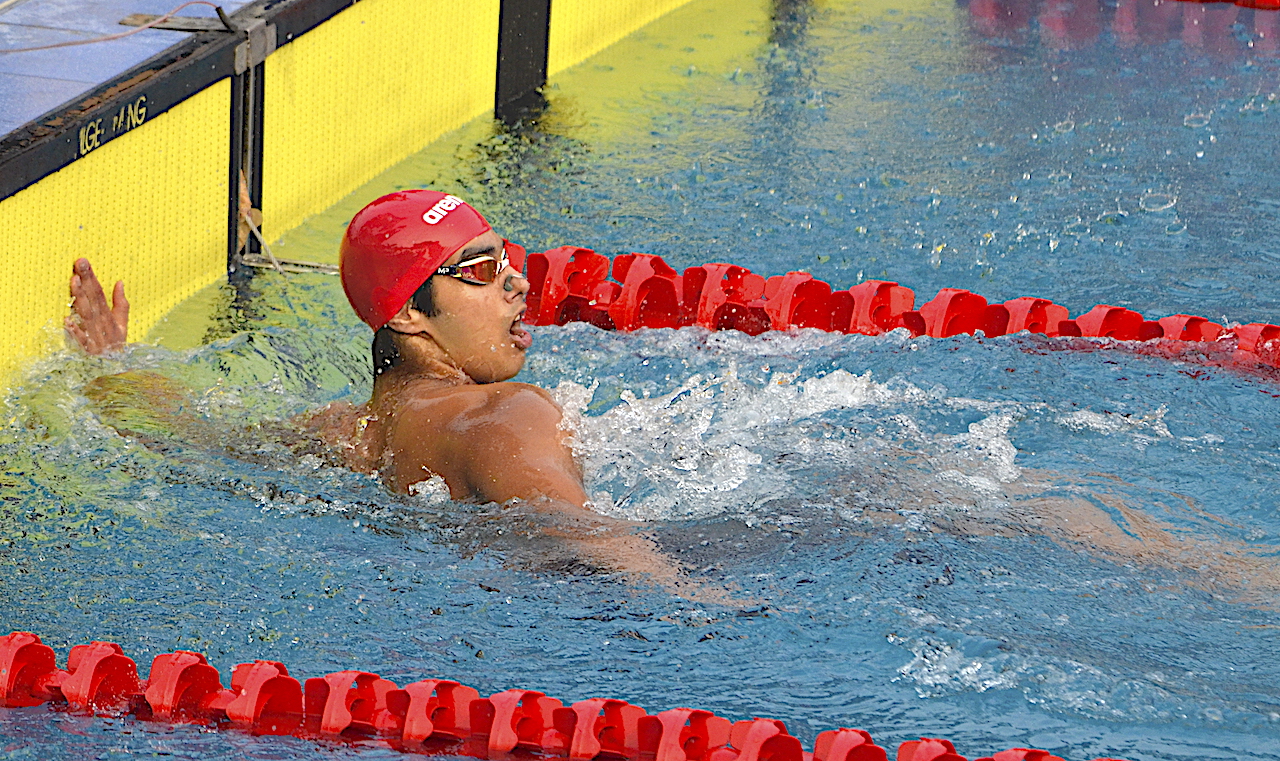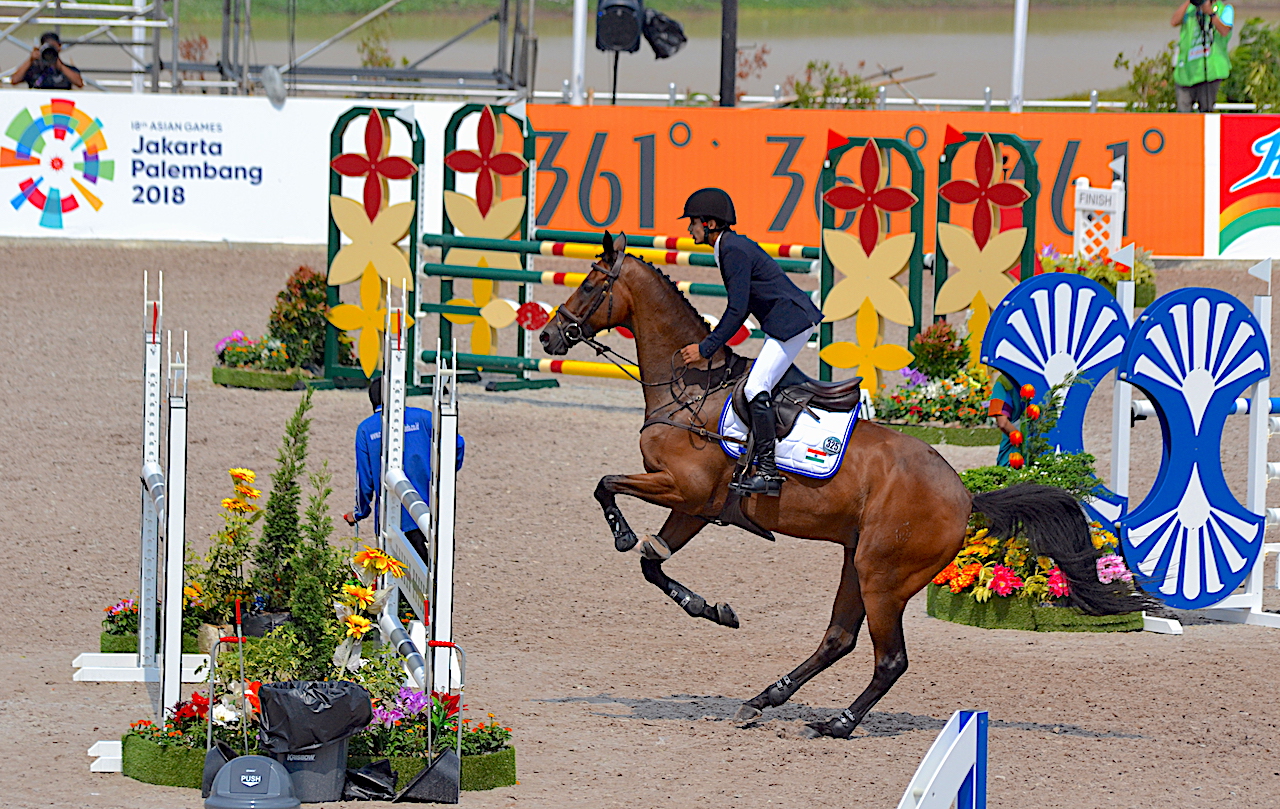His own memories of the arduous journey to peak fitness after recovering from Dengue fever four years ago will guide India’s backstroke swimming ace, Srihari Nataraj, when he decides on when to return to training after lockdown, imposed across the country in the wake of the Covid-19 outbreak.
The strapping Bengaluru-based swimmer will also be guided by reports that South African Cameron van der Burgh, who contracted the virus in the United Kingdom, saying that the fortnight was the worst period of his life. “I will have to be careful about where I train,” Srihari Nataraj told an online journalism workshop.
The 19-year-old said he would have to weigh the options before getting into a pool. “It will be important to see where I am being allowed to train and if it is safe to go there. If I were just training, it may be safe, but if it were in a big group, it might not be,” said the rising star, using a cap to keep his wildly-growing hair in place.

“I will look at any opportunity to return to the pool, but not at the risk of endangering my health. To get faster, I need to be fit. And if I fall sick, it will set me back further,” Srihari Nataraj said, pointing out that the enforced break was putting everyone back. “It is a decision that has been made in the best interest of the public. If it goes out of control, it would be extremely hard.”
He admitted that he was a little disappointed when he heard news of the Olympic Games being postponed to 2021. “I was in very good shape before the lockdown. I was to race in Dubai in the first week of April. I was confident that I would get the A qualification there. The goal for 2020 stays the same. When it comes to 2021, I will have a set of faster and tougher goals,” he said.
“I will work specifically on the race that I am trying to qualify in. My training will be different to how I prepare for the senior nationals when I train for five events and relays. I will focus on 100 and 200 backstroke. I might swim the 50 as well but I will keep it simple. It is about optimising the training now. As many have said, this is not the time to train hard but to train smart,” he said.
“In the beginning I was a little worried and frustrated that it would affect my preparations for the Olympic Games. But now that Tokyo2020 has been postponed, and assuming that the lockdown would be lifted sometime in May, I would have had a month and a half away from swimming. I have not had that kind of a time in many years,” Srihari Nataraj said
“If I can get back to the pool only in September or later, I would have only six months to train. I am confident that within a month I can get back to my old form and that I would not lose any of my speed and endurance. You skip a day of training, you are set back by two days. The progress that I could have made in the six months will perhaps take a year to achieve,” he said.
“As far as the mental aspect goes, I am keeping it simple. I am aware that there is nothing I can do. I don’t get anxious. For, the Lockdown is for our own good. I spend time watching movies, reading books. I am basically not getting stressed,” the teenager said, with a maturity far beyond his years.
Besides training with weights and resistance bands every day, the youngster is watching a lot of movies, TV shows and a lot of anime. “Most of it is about people fighting to be the strongest. I analyse these shows. I try to think the way the characters think. In one of the animes, the fight is a life-or-death situation. In the war movies, we see people keep fighting when they are injured or about to die. They keep on going even when they take a bullet in the hand. If they could do that, why do I have to stop, I ask myself,” he said.
“In my mind when I race I know I have put in the work. When it comes to training, I am very honest with myself. My philosophy has been: “slow swimming is more dangerous than no swimming.” Going into a training session when fatigued will not help the athlete. In fact, it will do more harm. I can tell by the feeling in the water whether I would be fast and smooth,” he said.

Yet, he will be extremely cautious when returning to the sport he so loves. “I could barely race in the 2016 Nationals when I recovered from Dengue. It took me four or five months to get back to where I was,” he said. “Of course, I miss the feel of the water and the adrenaline rush, but I am aware that staying indoors is the best thing to do at the moment.”
A shorter version of this piece appeared in Mail Today on Monday, April 27, 2020


